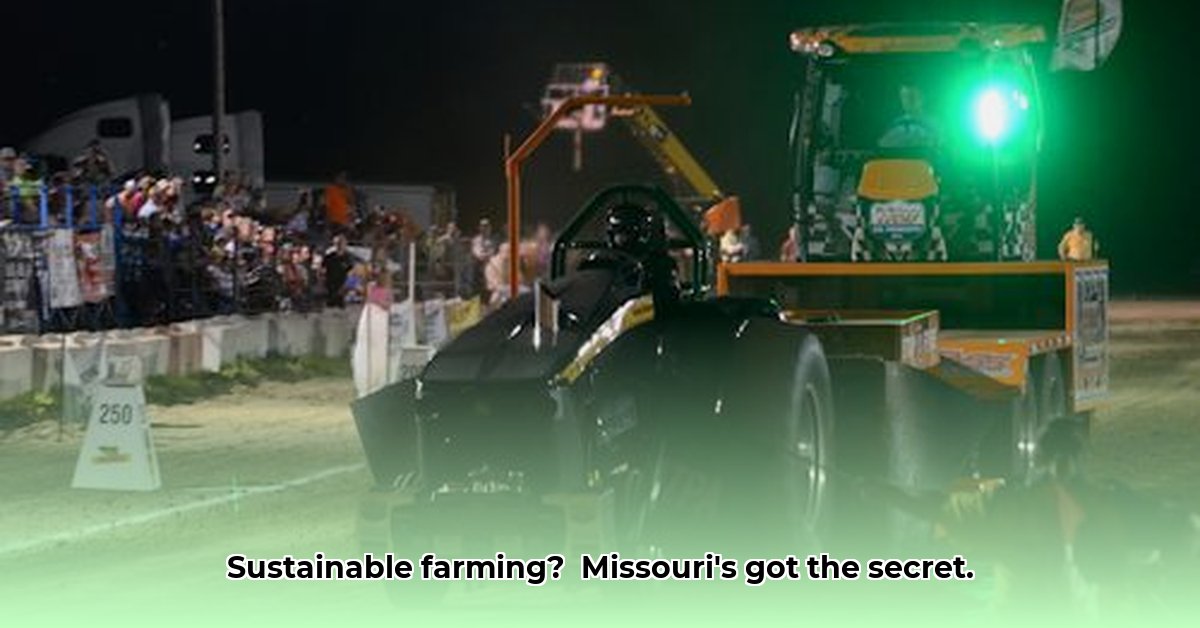
Missouri Tractor Pulls: Going Green on the Track
Missouri tractor pulls, a cherished tradition deeply woven into the state's agricultural heritage, are evolving. For generations, these events have celebrated horsepower and pulling power. However, a growing awareness of environmental responsibility is prompting a shift towards sustainable practices. This article explores how Missouri's tractor pull community is embracing eco-friendly innovations, balancing the thrill of competition with a commitment to environmental stewardship. We'll examine modifications to equipment, event management strategies and the broader implications for sustainable agriculture. For more information on similar events, check out tractor shows.
The Environmental Impact: A Look Under the Hood
Traditional tractor pulls, fueled by fossil fuels and demanding high-performance engines, contribute to a significant environmental footprint. Exhaust emissions, tire wear, and waste generation are key concerns. But the question isn't if change is necessary, but how we can maintain the excitement while minimizing environmental impact. Isn't it possible to have both thrilling tractor pulls and a healthy planet? The answer is a resounding yes.
Revving Up Sustainability: Green Modifications for Your Tractor
Fortunately, several modifications can significantly reduce the environmental impact of tractor pulls:
Biodiesel Power: Shifting to biodiesel blends (mixing standard diesel with biofuels like soybean oil) reduces reliance on petroleum. Experimentation with blend ratios is key to finding an optimal balance between performance and environmental benefits. A 20% blend might be a good starting point, but engine adjustments may be necessary.
Engine Tune-Up: Efficiency is Key: A well-maintained engine is a fuel-efficient engine. Regular maintenance, encompassing tasks like carburetion adjustments (for older engines) or fuel injection system checks (for newer ones), can drastically improve fuel economy and cut emissions. Consulting a mechanic specializing in both performance and efficiency is highly advisable.
Tire Tactics: Making Every Rotation Count: Proper tire inflation and tire selection optimize traction and minimize wear. Correct inflation dramatically reduces fuel consumption and extends tire lifespan, minimizing waste and reducing landfill contributions. Regular tire rotations and wear inspections are essential.
Waste Reduction: Cleaning Up After the Pull: A comprehensive waste management plan is paramount. This includes readily accessible recycling bins for various materials, proper disposal of used oils and fluids, and possibly even food waste composting. Clear signage and dedicated volunteers can greatly improve waste management effectiveness.
Sustainable Practices Beyond the Machine: A Team Effort
Sustainability in tractor pulls requires a collective approach involving organizers, participants, and spectators:
Carbon Offsetting: Counteracting Emissions: Exploring carbon offsetting programs helps neutralize the event's carbon footprint. These initiatives involve supporting projects that reduce greenhouse gas emissions elsewhere, such as reforestation. While a cost factor exists, it’s a way to mitigate the event's impact.
Renewable Energy Solutions: Powering Up Sustainably: Utilizing renewable energy sources like solar or wind power to supply electricity for event lighting, sound systems, and even charging stations for electric vehicles demonstrates a commitment to sustainability.
Smart Transportation: Travel Green: Encouraging carpooling, public transport, or cycling to the event reduces traffic congestion and emissions. Incentives like designated parking or discounted admission fees can boost participation.
Educating the Crowd: Spreading the Word: Educating spectators about eco-friendly practices – proper waste disposal, responsible energy use, etc. – amplifies the positive impact. Even small individual actions, when multiplied by hundreds of attendees, make a significant difference.
The Future is Green: Sustainable Tractor Pulls – A Vision
The future of Missouri tractor pulls depends on embracing innovation and adaptation. Imagine events that are both thrilling and environmentally sound. This is not merely aspirational; it's achievable. Through collaboration and shared commitment to sustainability, we can preserve this cherished tradition while safeguarding the planet.
Weighing the Options: Pros and Cons of Green Modifications
| Modification | Pros | Cons |
|---|---|---|
| Biodiesel Blends | Reduced fossil fuel dependence, lower emissions. | Higher initial cost, potential engine compatibility issues. |
| Engine Optimization | Improved fuel efficiency, reduced emissions, enhanced engine longevity. | Requires specialized knowledge/equipment, potential initial investment. |
| Tire Management | Increased traction, reduced tire wear, lower fuel consumption, less landfill waste. | Requires regular maintenance and attention. |
| Comprehensive Waste Management | Prevents environmental harm, promotes responsible waste disposal. | Requires careful planning, coordination, and potentially increased event costs. |
| Carbon Offsetting | Neutralizes carbon emissions. | Can be costly, effectiveness depends on project quality and verification. |
| Renewable Energy at Events | Reduces reliance on fossil fuels for event power. | Higher initial investment in renewable energy infrastructure. |
| Sustainable Transportation Options | Reduced traffic congestion, lower emissions. | May require creative planning and incentives for attendee participation. |
The transition to sustainable Missouri tractor pulls won't be instantaneous. It demands a collective commitment. But by working together—literally and figuratively—we can ensure that this exciting tradition continues to thrive for generations to come, while embracing a greener future.